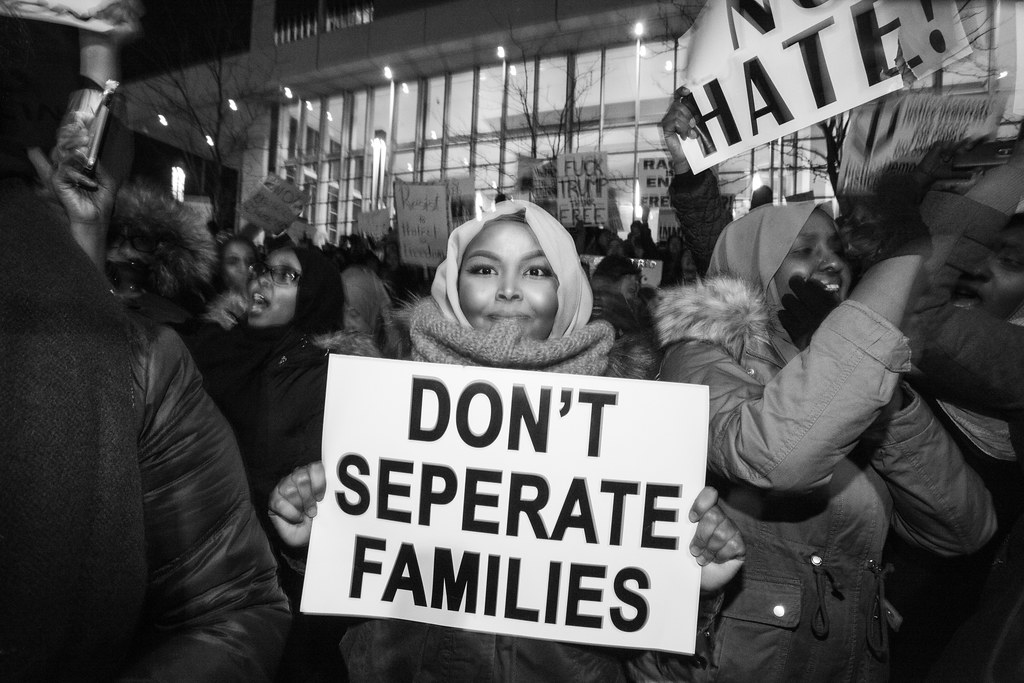In early October, Ellen DeGeneres – host of the eponymous daytime talk show Ellen – stirred up controversy when she was seen sitting next to, and sharing a few laughs with former President George W. Bush at a football game. That the two would be sitting next to one another and acting congenially came as a surprise to many, not only because Bush is a controversial figure, but especially because of his public stance that same-sex marriage should be illegal, one that DeGeneres vehemently opposes. While it was then odd to see the two together, what some found ever odder was DeGeneres’ explanation, which she stated on her talk show as follows:
“Here’s the thing, I’m friends with George Bush. In fact, I’m friends with a lot of people who don’t share the same beliefs that I have. We’re all different and I think we’ve forgotten that that’s okay that we’re all different…When I say, ‘Be kind to one another,’ I don’t mean only the people that think the same way I do. I mean be kind to everyone.”
As an example, DeGeneres stated that while she does not think that people ought to be wearing fur, she is still friends with people who wear fur, despite their difference in views. Here, then, is one lesson we might think we should draw from DeGeneres’ explanation: disagreement on principles should not preclude one’s obligation to be kind to others.
Is DeGeneres right? Is it the case that we ought to be kind to everyone, and perhaps especially to those who disagree with us?
There is something very appealing about this line of thinking, especially when there appears to be so much division across political lines in America. One might think that fostering a general spirit of kindness towards people with differing viewpoints would help counteract some of this divisiveness, and that our default stance towards others should just be this kind of kindness. What’s more, all of us have likely had experiences where we thought the best course of action was to be kind to those who disagree with us, especially when it comes to family and friends. A principle of universal kindness – be kind to everyone, regardless of your disagreements – might then sound pretty good.
Presented as a general principle, though, to say that we ought to be kind to everyone seems clearly to be false. Cases in which I don’t have any obligation to be kind to others are easy to come up with: I don’t owe you kindness if you’ve consistently been a complete jerk to me, for example, nor does it seem like I’m obligated to be kind to you if you’re a genuinely awful person. As some commenters have suggested, Bush’s actions during his presidency may very well put him in the latter category, and thus deserves little in the way of kindness. One worry with showing kindness to even to those who have done morally egregious things is that we might be giving off the message that those transgressions should be forgiven, or at least that they are not that big of a deal.
We might also think that there are problems with saying that one ought to show as much kindness to those with whom one has minor disagreement as to those who have done morally egregious things. Molly Roberts at The Washington Post summarizes the concern as follows:
“Owning a mink…is different from orchestrating a historic foreign policy failure punctuated by a secret torture program and hundreds of thousands of civilian deaths. There exists a sliding scale of badness determining who deserves complete and total cancellation. You can probably hang out with fur person on one end and you absolutely can’t hang out with neo-Nazis at the other. George W. Bush falls somewhere in between.”
Of course, some might want to argue about the nature of Bush’s presidency: how morally culpable we should find him, and whether we should, overall, classify him as a genuinely awful person. And we still do, of course, have the problem that a failure to show kindness to one’s political and moral opponents could be seen as fostering further divisiveness: if Ellen were to snub Bush’s offer of friendly banter, for example, that might be seen as a more general snub towards Bush supporters and Bush-friendly Republicans. Indeed, Chris Cillizza at CNN writes that chumming around with Bush was actually well in-line with DeGeneres’ left-wing politics:
“What DeGeneres is advocating there is sort of anti-Trumpism in its purest form. Because what this President represents, more than any issue stance or policy position, is the idea that people who disagree with you are to be mocked, to be villainized, to be bullied. If you disagree with Trump on, well, anything, you are his enemy. The only way to be in his good graces — and therefore, in the good graces of those who support him — is to agree with him on absolutely everything.”
According to Cillizza, then, it is a form of anti-Trumpian defiance to show kindness towards one’s opponents, as Trump would never show such kindness to those who disagree with him. Failing to show such kindness, then, would again risk siding oneself with the forces of divisiveness.
Failing to show kindness, however, does not require the kind of mockery, villainizing, and bullying that Cillizza ascribes to Trump: the options that one has when interacting with those one disagrees with are not limited solely to either acting like old friends or viciously attacking them. While there are many potential courses of action in between, one obvious action one could take when presented with someone of morally questionable character with whom one fundamentally disagrees is simply to ignore them.
That is not to say that this is what one should always do – there may indeed be many cases in which showing kindness to one’s opponents is the best course of action. However, it will certainly not always be the case that a failure to show kindness will be equivalent to sowing the seeds of divisiveness, or mockery, villainizing, or bullying. Perhaps, then, Ellen should have just sat somewhere else.


